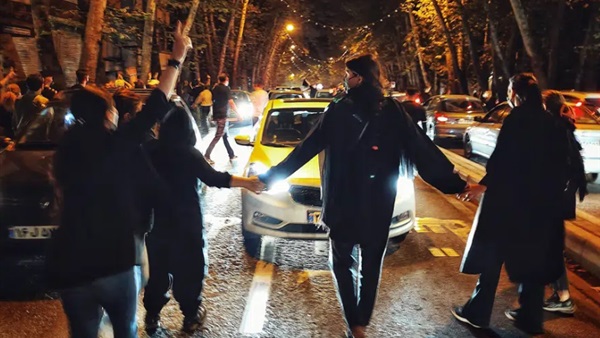Iran executes 2 more men detained amid nationwide protests

Iran said it executed two men Saturday convicted of
allegedly killing a paramilitary volunteer during a demonstration, the latest
executions aimed at halting the nationwide protests now challenging the
country’s theocracy.
Iran’s judiciary identified those executed as Mohammad Mehdi
Karami and Mohammad Hosseini, making it four men known to have been executed
since the demonstrations began in September over the death of Mahsa Amini. All
have faced internationally criticized, rapid, closed-door trials.
The judiciary’s Mizan news agency said the men had been
convicted of killing Ruhollah Ajamian, a member of the Iranian Revolutionary
Guard’s volunteer Basij Force, in the city of Karaj outside of Tehran on Nov.
3. The Basij have deployed in major cities, attacking and detaining protesters,
who in many cases have fought back.
Heavily edited footage aired on state television showed
Karami speaking before a Revolutionary Court about the attack, which also
showed a reenactment of the attack according to prosecutors’ claims. Iran’s
Revolutionary Courts handed down the two other death sentences already carried
out.
The tribunals don’t allow those on trial to pick their own
lawyers or even see the evidence against them. Amnesty International has said
the trials “bore no resemblance to a meaningful judicial proceeding.”
State TV also aired footage of Karami and Hosseini talking
about the attack, though the broadcaster for years has aired what activists
describe as coerced confessions.
The men were convicted of the killing, as well as “corruption
on Earth,” a Quranic term and charge that has been levied against others in the
decades since the 1979 Islamic Revolution and carries the death penalty.
Activists say at least 16 people have been sentenced to
death in closed-door hearings over charges linked to the protests. Death
sentences in Iran are typically carried out by hanging.
At least 517 protesters have been killed and over 19,200
people have been arrested, according to Human Rights Activists in Iran, a group
that has closely monitored the unrest. Iranian authorities have not provided an
official count of those killed or detained.
The protests began in mid-September, when 22-year-old Amini
died after being arrested by Iran’s morality police for allegedly violating the
Islamic Republic’s strict dress code. Women have played a leading role in the
protests, with many publicly stripping off the compulsory Islamic headscarf,
known as the hijab.
The protests mark one of the biggest challenges to Iran’s
theocracy since the 1979 revolution. Security forces have used live ammunition,
bird shot, tear gas and batons to disperse protesters, according to rights
groups.





